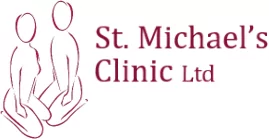Award winning dermatology service, with over 20 years on experience
Short waiting lists, on some occasions offering same week appointments
Safe environment, in Care Quality Commission approved facilities
PSORIASIS Treatments Include:
psoriasis treatment shrewsbury
Psoriasis is a chronic skin condition that can manifest at any age, though it tends to occur in adults under age 35. It is characterised by redness, scaliness, and itchiness on any part of the body but most prevalently found on elbows, knees, lower back and scalp. Symptoms can range from mild to severe with each flare up having its own duration which can cause painful physical discomfort nevertheless individuals should not worry as there are treatments available to people who suffer from psoriasis.
Alternative names: Chronic plaque, guttate, nummular/discoid, palmoplantar pustular, pustular, annular pustular, generalized pustular] – psoriasis, seborrhoeic dermatitis, sebopsoriasis.
What causes Psoriasis?
Psoriasis is a skin condition that is intermittent in nature and depicted by frequent remissions and ‘flare ups’. It occurs when the body replaces skin cells at an accelerated rate, prompting cells to appear on the outer surface of the skin which are not fully mature. While the root cause is believed to be related to some form of immune system malfunction, the true source remains unknown. Hereditary factors may play a role in developing psoriasis, as can illnesses, stress and certain medications. There is currently no cure for psoriasis, but it can be effectively managed though various treatments.
WHAT ARE THE SYMPTOMS/TYPES OF PSORIASIS?
Symptoms of psoriasis typically include red, raised patches of skin covered by silvery white scales. While different types of psoriasis may produce a different number and combination of symptoms, some standard features across the board include persistent itching and burning sensations, pain in joints associated with psoriatic arthritis, and fatigue.
One type of psoriasis is plaque psoriasis which occurs when excess skin cells form scaly patches on the elbows, scalp toenails, palms or soles. Another type is guttate psoriasis which manifests itself as multiple small oval or drop-shaped spots that appear quickly and is often triggered by an infection such as strep throat. Treatments for types of psoriasis vary greatly depending on the severity so it is important to speak with a healthcare professional about a personalised approach for your specific needs.
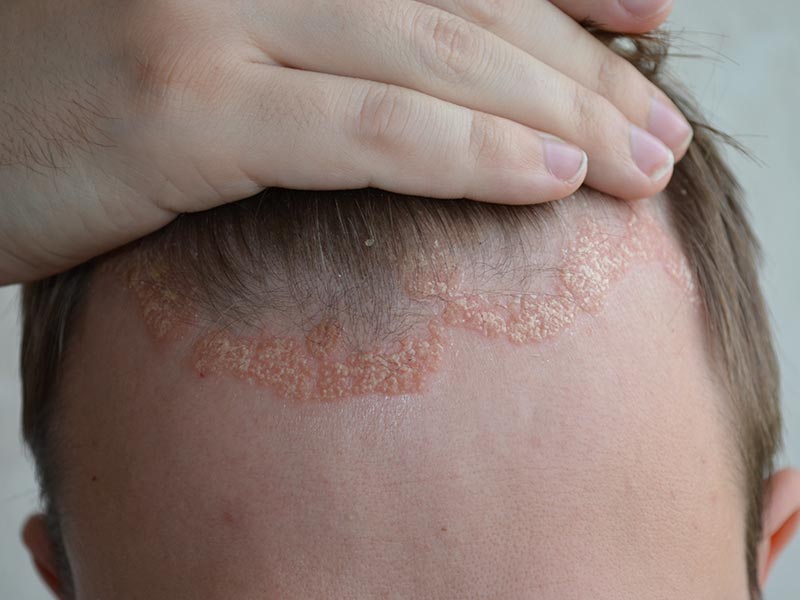
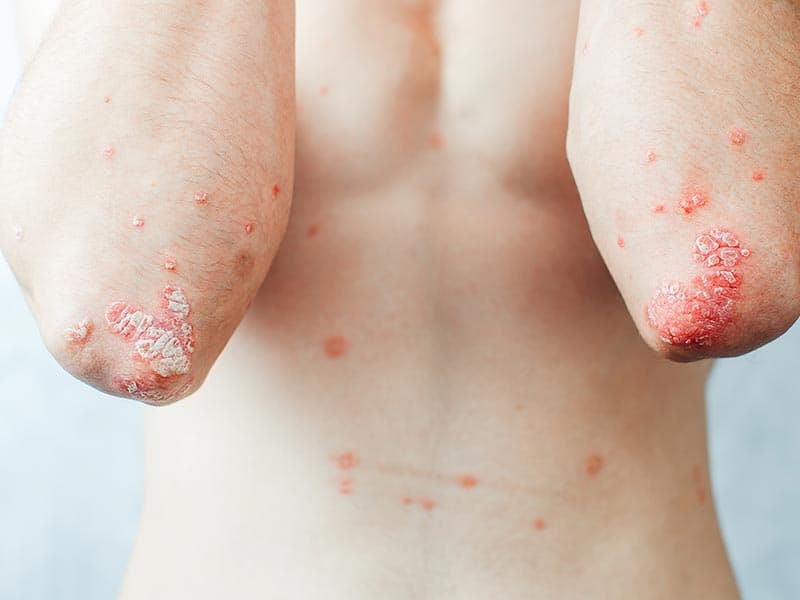
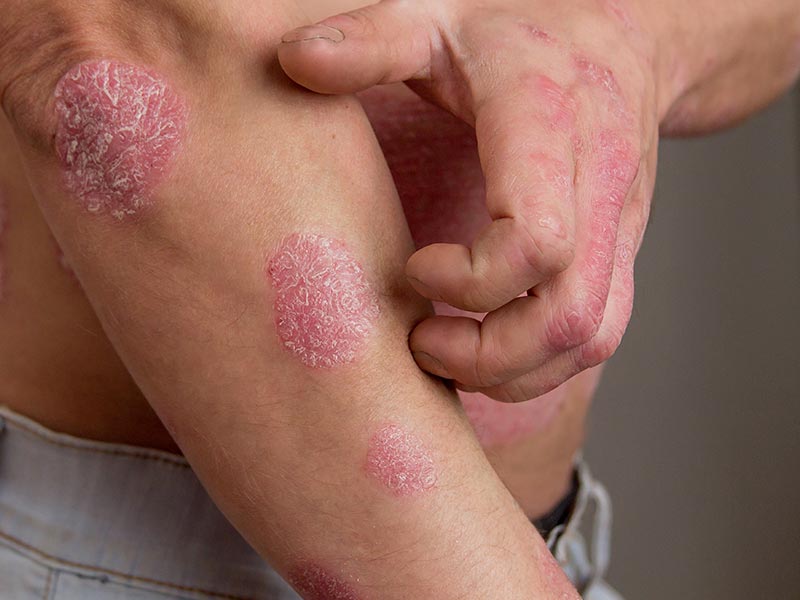
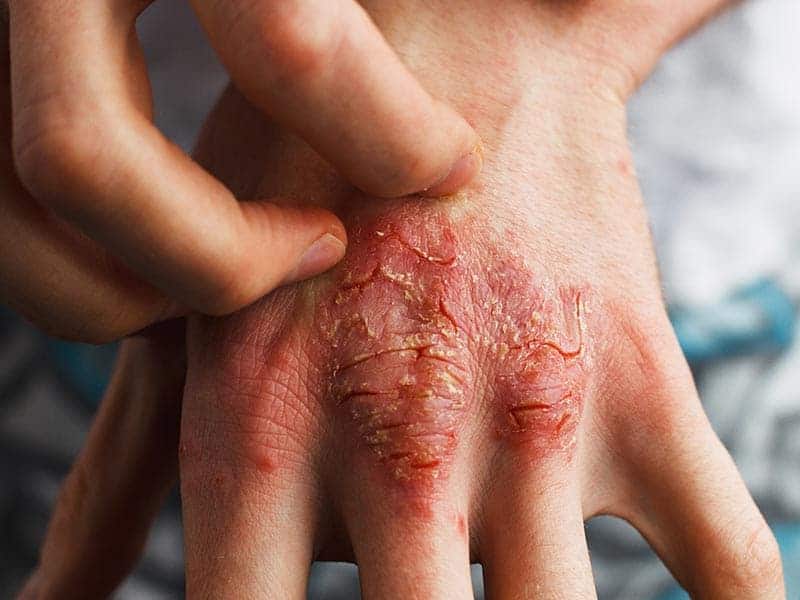
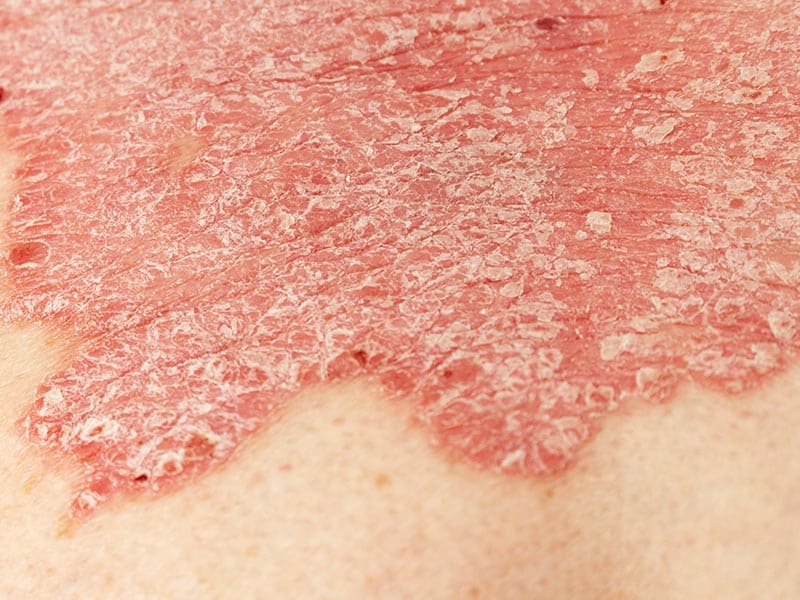
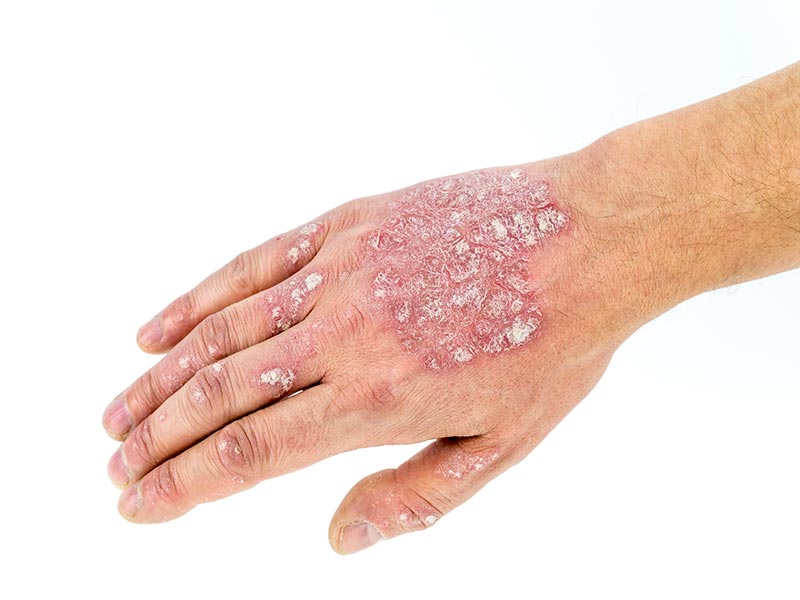
HOW CAN PSORIASIS BE TREATED?
Unfortunately there is no cure for psoriasis but there are ways the condition can be managed and symptoms alleviated. Many good treatments are now available for psoriasis, these include:
- Biologic injections
- Oral medications (methotrexate & cyclosporin)
- Creams and gels
- Ultraviolet light
In addition to receiving specific treatment for psoriasis flare-ups, it’s also important that you self-manage your skin condition in order to minimise and prevent flare-ups from happening. Maintaining good physical and mental health will ensure that your immune system is strong, and will lessen the risk of joint pain and fatigue that can be associated with psoriasis. Stress is often a trigger for flare-ups of psoriasis and other skin conditions, so beneficial for your health if you can avoid stress as much as possible.
FREQUENTLY ASKED QUESTIONS
IS PSORIASIS CONTAGIOUS?
No, psoriasis is not contagious
WHAT CAN TRIGGER PSORIASIS?
Common psoriasis triggers include:
- an injury to the skin
- alcohol
- smoking
- stress
- puberty
- menopause
- immune disorders
- certain medications
REQUEST A CALL BACK
Please fill in this form and one of our team will give you a call back to arrange a consultation with one of our expert dermatologists.
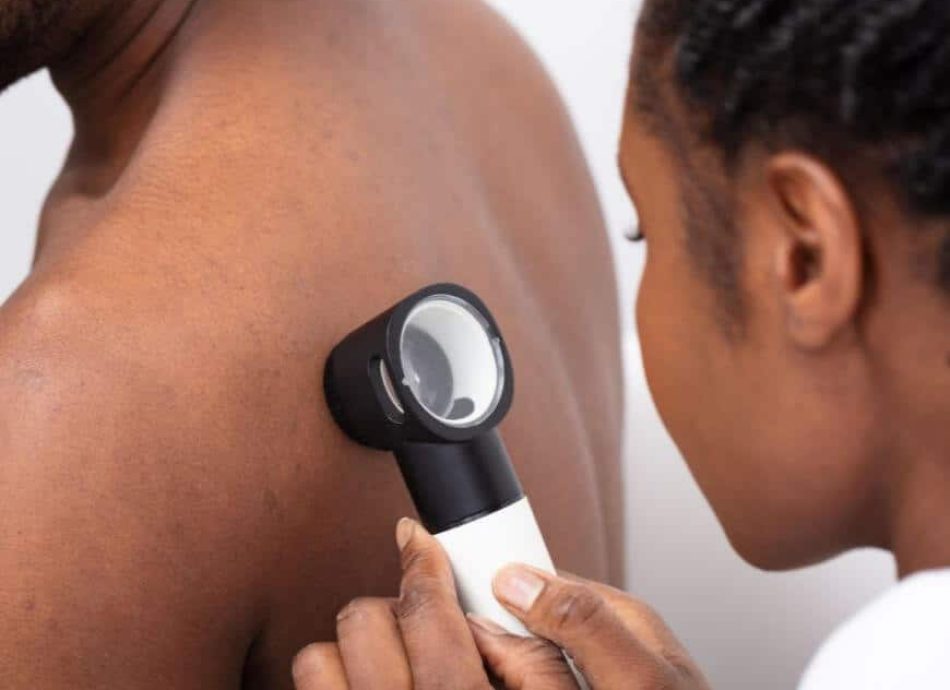
HEAR FROM OUR PATIENTS
WHY CHOOSE psoriasis treatment IN shrewsbury FROM ST. MICHAEL'S CLINIC?
Here at St. Michael’s Clinic, Shrewsbury’s leading private skin and laser treatment clinic, our experts are specialists in all aspects of dermatology, skin cancer, anti-ageing and beauty treatments. We are able to offer NHS patients a consultant led dermatology service from our sites in Shrewsbury and Much Wenlock.
St. Michael’s Clinic is regulated by the Care Quality Commission, ensuring the best level of treatment is provided to you in a safe environment. We are part of the Dermatology Partnership, a leading group of dermatology clinics, defined by clinical excellence and focusing on leading dermatological care.
PSORIASIS INSIGHTS AND ADVICE

A Comprehensive Resource For Dealing with Rosacea: Your Guide For Rosacea Awareness Month 2024
Rosacea Awareness Month is celebrated annually in April, an opportune moment to shine a spotlight on this commonly experienced but often misunderstood skin disorder. Anyone grappling with rosacea worldwide – you’re not standing alone. Rosacea is a long-term inflammation disease that primarily causes facial redness
